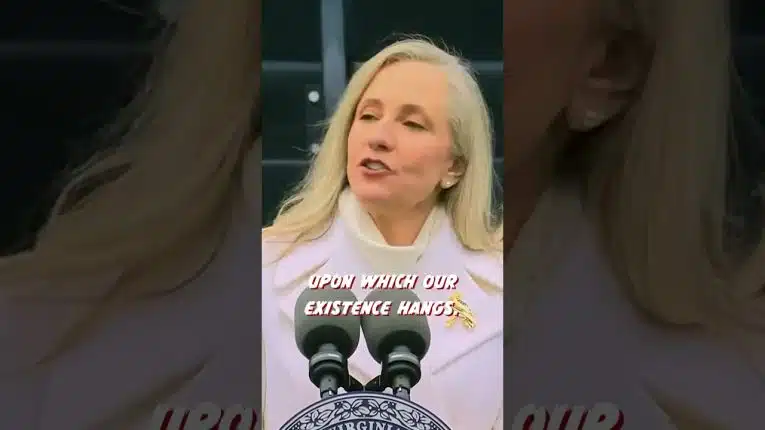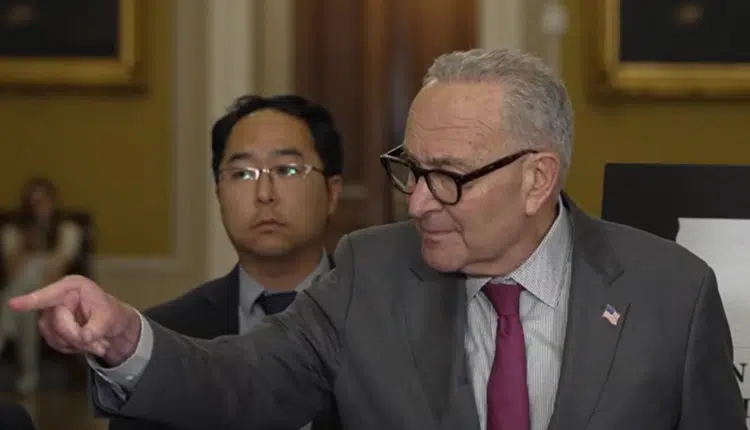By Robert Romano – By now, it is common knowledge that the 2011 continuing resolution negotiated by House Speaker John Boehner, which cut $38.5 billion in budget authority, will only reduce 2011 outlays by about $352 million. That is mostly because the resolution did not address about $240 billion of budgeting authorities enacted by previous Congresses that have yet to be fully spent. Only when they are will outlays begin reducing in subsequent fiscal years.
Tea parties and other grassroots activists across the country have cried foul, rightly noting that the legislation falls far short of the Republican pledge to “roll back government spending to pre-stimulus, pre-bailout levels, saving us at least $100 billion in the first year alone and putting us on a path to balance the budget and pay down the debt.”
Still, a $38.5 billion cut to the budgeting authority is a real cut, and its impact will be felt over this decade. Regardless of the facts, however, there is now widespread perception among grassroots conservatives, tea party activists, and Republicans that there were no cuts of consequence in the continuing resolution. This in turn has eroded public confidence in congressional Republicans.
Now, pressure is on the GOP to get stronger cuts in exchange for increasing the $14.294 trillion national debt ceiling. The debt limit applies to so-called “debt subject to limit”, which as of April 20 stood at $14.262 trillion, just $32 billion shy of the ceiling. An alarmist White House has warned that the nation will default if the ceiling is reached.
But as noted by Americans for Limited Government President Bill Wilson, that’s not entirely true. “The existing debt could still be refinanced, but interest owed on the debt would have to be paid out of revenue and the budget would also have to be balanced immediately. That is not a default,” he said.
Instead, it would all depend on the choices that the Treasury makes about whether or not to pay the nation’s creditors out of existing revenue. If we default, it will be because the Treasury made a conscious decision not to pay those creditors.
The Administration’s scare tactics apparently are not having much of an effect on the public. A recent survey by Pulse Opinion Research conducted for The Hill found that 62 percent of likely voters oppose raising the debt ceiling under any circumstances. Significantly for Mr. Boehner, 77 percent of Republicans and 64 percent of independents opposed increasing the debt limit. Even 46 percent of Democrats oppose raising it.
That means if House Republicans acquiesce to a so-called “clean” vote on the debt ceiling, as the White House is demanding, they will likely lose more support amongst Americans who just got done sending them back into the majority in 2010. So, they need something in return for the vote — something big.
There have been several suggestions as to what Republicans ought to demand in return for increasing the debt ceiling. For example, Florida Republican Senator Marco Rubio has recently written that “I will vote to defeat an increase in the debt limit unless it is the last one we ever authorize and is accompanied by a plan for fundamental tax reform, an overhaul of our regulatory structure, a cut to discretionary spending, a balanced-budget amendment, and reforms to save Social Security, Medicare and Medicaid.”
In these pages, Americans for Limited Government has written that at a minimum, any increase in the ceiling should include the Balanced Budget Amendment proposed by Utah Republican Senator Orrin Hatch.
Still others have proposed tying the House-passed 2012 budget authored by House Budget Chairman Paul Ryan to an agreement to raise the ceiling. That proposal will reduce outlays by about $110 billion for 2012 and implement spending caps going forward, resulting in about $5.8 trillion in deficit-reduction over ten years.
House Majority Leader Eric Cantor has indicated Republicans will fight for something, saying, “if the President and our Democratic colleagues refuse to accept serious reforms that immediately reduce federal spending and end the culture of debt in Washington, we will not grant their request for a debt limit increase.” Yet, no specifics were offered — yet.
Former Deputy Chief of Staff to President George W. Bush Karl Rove recently suggested that “congressional Republicans need to settle on a common negotiating posture sooner rather than later” on the debt ceiling, noting the various approaches that have been proposed.
Rove himself called for “[r]obust spending and deficit caps requiring rescissions and cuts if spending or deficits breach historic norms”, which is essentially what the Ryan budget proposes to do. Although, it would take 26 years to balance the budget under that particular approach.
Even the Washington Post editorial board, alarmed by S&P’s recent downgrade of the outlook on U.S. debt from “stable” to “negative” declares that “the looming debt limit vote offers an opportunity to accomplish some real deficit reduction.”
With such widespread agreement on the need to couple the debt ceiling vote with real spending cuts, now Speaker Boehner and Senator Minority Leader Mitch McConnell need to deliver. Whether a Balanced Budget Amendment, which would rein in spending for all time, or a deal on the 2012 budget, the American people are watching — and they are expecting big cuts.
Robert Romano is the Senior Editor of Americans for Limited Government.







